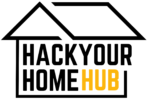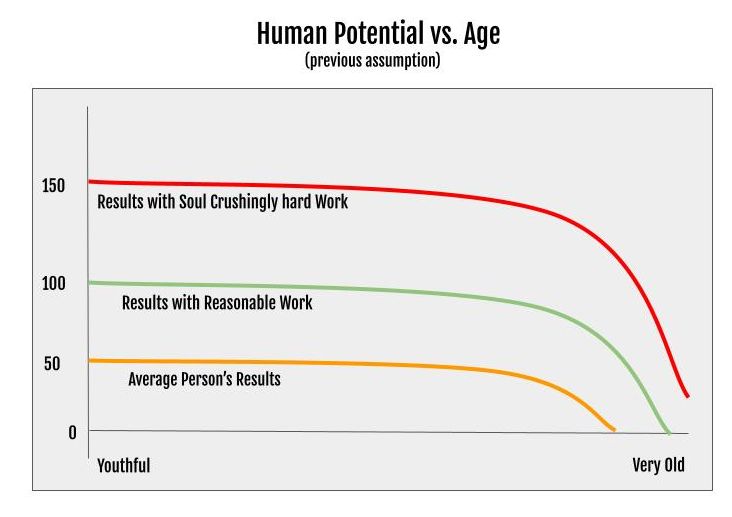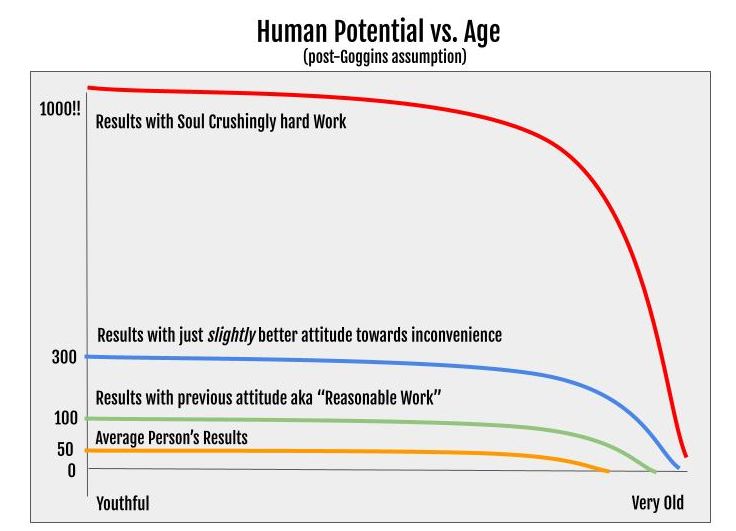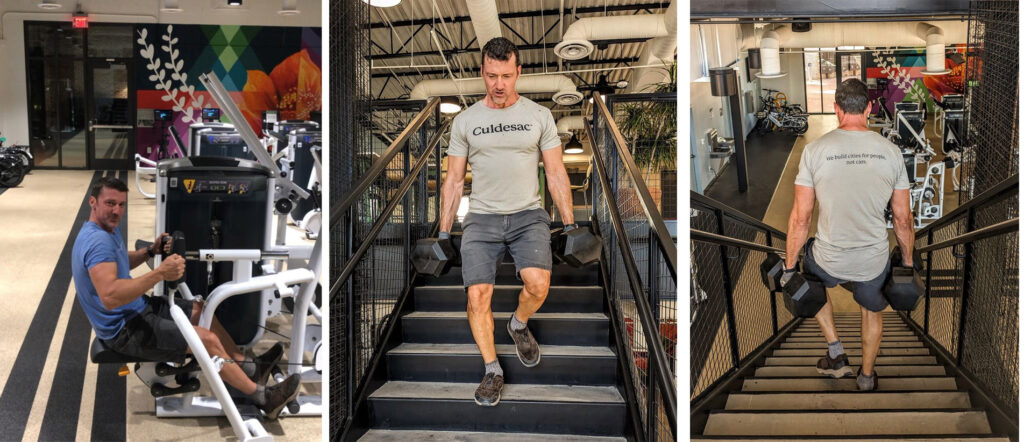Nearly nineteen years into early retirement, I have come to understand that the complete freedom of this lifestyle can be both a privilege and a challenge.
The benefits are undeniable: the ability to raise my son from birth through adulthood without compromise, as well as dedicating thousands of hours to pursuits I value—family, health, friendships, travel, construction projects, and writing. I have no regrets about any of this.
However, even an ideal life comes with its own challenges. One of the most significant is that I never have to do anything I don’t want to do.
To many, this may seem like a dream come true. When combined with financial security, one might assume life becomes an effortless journey of self-fulfillment. Yet, in reality, the outcome depends entirely on the individual.
Freedom and financial independence reveal a person’s true strengths and weaknesses. The spectrum ranges from complete indulgence in comfort and entertainment to the creation and management of philanthropic initiatives that drive meaningful change in society.
For most of my journey, I have managed to maintain a productive balance. The early years of fatherhood were intense, yet I also found time to renovate homes, embark on adventures, deliver public talks, and write extensively. However, in recent years, I have noticed a gradual decline in my drive to initiate and complete meaningful projects.
Rather than fully immersing myself in creative and fulfilling work, I found myself increasingly drawn to passive distractions. My afternoons became less about building or writing and more about seeking easy entertainment on my phone.
Recognizing this, I sought to regain focus by learning more about health, wellness, and productivity. I implemented strategies for sustaining energy and motivation, many of which I have shared in previous writings. While these approaches were effective when applied consistently, I noticed a recurring pattern: I would adopt new habits, experience their benefits, but eventually allow excuses to interfere with consistency. The result was an accumulation of knowledge but insufficient progress.
Upon reflection, I realized that my greatest advantage—complete freedom—was also becoming a liability. I was using my autonomy to avoid activities that required effort, energy, and discipline.
Freedom is invaluable when it prevents you from enduring long commutes and uninspiring work. However, if that same freedom is squandered on unproductive habits, it loses its value. To make the most of this opportunity, one must replace former work obligations with activities of equal or greater significance.
I was engaging in tasks that were comfortable—maintaining my home, socializing with friends—but was avoiding those that required deeper focus and determination. These more challenging endeavors were, paradoxically, the ones that brought the greatest fulfillment.
A simple example is exercise. I understand its immense benefits, yet I often found myself making excuses:
- “I want to complete a weight training session today.”
- “I don’t feel like doing it because it’s difficult.”
- “I’ll set myself up for success by preparing in advance.”
- “When conditions are perfect, I’ll follow through.”
The flaw in this approach was clear: the perfect moment did not always arrive. Some weeks, I exercised consistently; other weeks, I rationalized inactivity. The result was predictable—suboptimal fitness and unrealized potential.
The breakthrough came when I replaced hesitation with immediate action. Instead of engaging in an internal dialogue about whether or not to exercise, I adopted a new approach:
- “I want to exercise today.”
- “I don’t feel like it.”
- “This is the precise moment to act.”
- “I am now putting on my shoes and walking to the gym.”
This mindset shift made all the difference. By eliminating hesitation as an obstacle, I was able to make consistent progress, not only in fitness but in other areas of life as well.
Drawing Inspiration from High Performers
When discussing this concept with friends, I observed two perspectives. Some felt they were not achieving enough and sought greater discipline, while others were already balancing multiple demanding commitments and felt overextended.
Both groups could benefit from adjustments—some by increasing discipline, others by incorporating more balance.
Enter Goggins
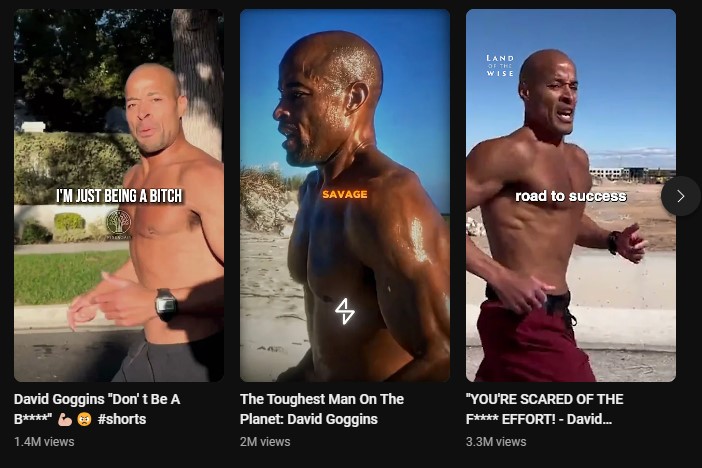
Hearing stories of high-achieving individuals can be inspiring, but what truly shifted my perspective was a podcast interview with David Goggins—arguably one of the most extreme examples of human perseverance and pushing beyond perceived limits.
His life story is both astonishing and deeply challenging. Enduring severe hardships in childhood, he faced immense psychological struggles. Yet, what sets him apart is his response—an unrelenting drive to confront and overcome adversity, not just to extraordinary levels but far beyond what most would consider possible.
From enduring near-fatal challenges to qualify for a Navy SEALs career, to running 240 miles over four days without sleep, and even setting a world record of 4,025 pull-ups in 24 hours—despite severe physical injuries—Goggins demonstrates feats of resilience that seem almost beyond human capability.
This realization placed my own life into stark perspective. While I have no desire to emulate his extreme lifestyle, his story reinforced a powerful truth: most of the limitations we experience are not imposed by external circumstances but are, in fact, self-imposed mental barriers.
Sure, we do have different starting points and different amounts of luck. But instead of thinking of life like this:
I now realize that things are more like this:
And that’s a really empowering way to think about life, that feels like the sky has opened way up.
Ongoing Inspiration
The podcast served as a catalyst, but the true transformation began with a simple yet powerful reminder. I wrote down the phrase, “You already know what to do,” on a piece of cardstock, placed it on my bathroom mirror, and committed to acting on it immediately.
This shift in mindset redefined my approach to exercise. Whether I felt motivated or not, both states became cues to take action—eliminating hesitation as a factor in decision-making.
The results were undeniable. Although I had maintained an interest in fitness since my teenage years, I had remained on a plateau for quite some time. However, with this renewed discipline, I gained ten pounds of lean muscle in just four months, regaining the strength and flexibility I had at 25. Every joint in my body now feels stronger, more resilient, and better conditioned—like a well-maintained, finely tuned system.
I also applied the “catch yourself at the moment of hesitation” strategy to various aspects of my daily routine. This simple mindset shift encouraged me to run instead of walk more frequently—accumulating over 20 runs since returning to Colorado last month. It also motivated me to spend more time at the MMM-HQ coworking space, fostering both productivity and social engagement, and even helped me refocus on writing this very post.
While I have recognized that excessive involvement in blogging and internet-driven “success” can be counterproductive, I have also found that there is a balanced level of engagement that works for me. However, maintaining that balance requires discipline. With so many easier, more immediately gratifying alternatives competing for my time, the challenge lies in making the deliberate choice to engage in the tasks that provide deeper fulfillment and long-term value.
Refilling the Inspiration Tank
For me, fully embracing this simple yet powerful mindset shift has been transformative. However, I have also found that consistently revisiting sources of inspiration enhances its effectiveness. To reinforce this perspective, I listened to both of David Goggins’ audiobooks in small increments during my morning walks over the course of a month. From there, I explored Outlive by Peter Attia and Extreme Ownership by Jocko Willink.
While some may critique the rise of health-focused influencers, questioning their methods or motivations, I take a pragmatic approach—absorbing the insights that resonate with me and disregarding the rest. The key is to surround yourself with individuals who challenge you to aim higher and to draw energy from their drive.
For me, exposure to high-performing, disciplined individuals—whether in fitness, leadership, or personal development—serves as a constant source of motivation. It pushes me to be more intentional with my time and to maximize my potential, which aligns well with the phase of life I am currently navigating.
And I wish you more of what works for you too!
